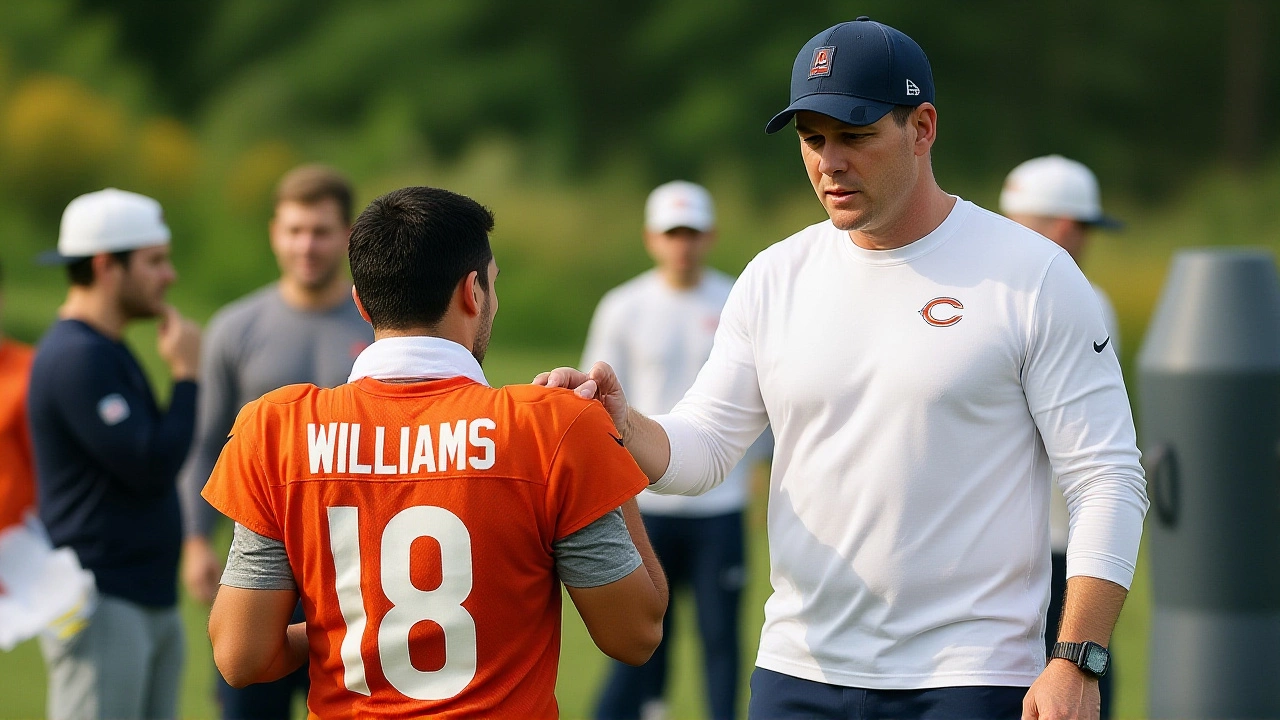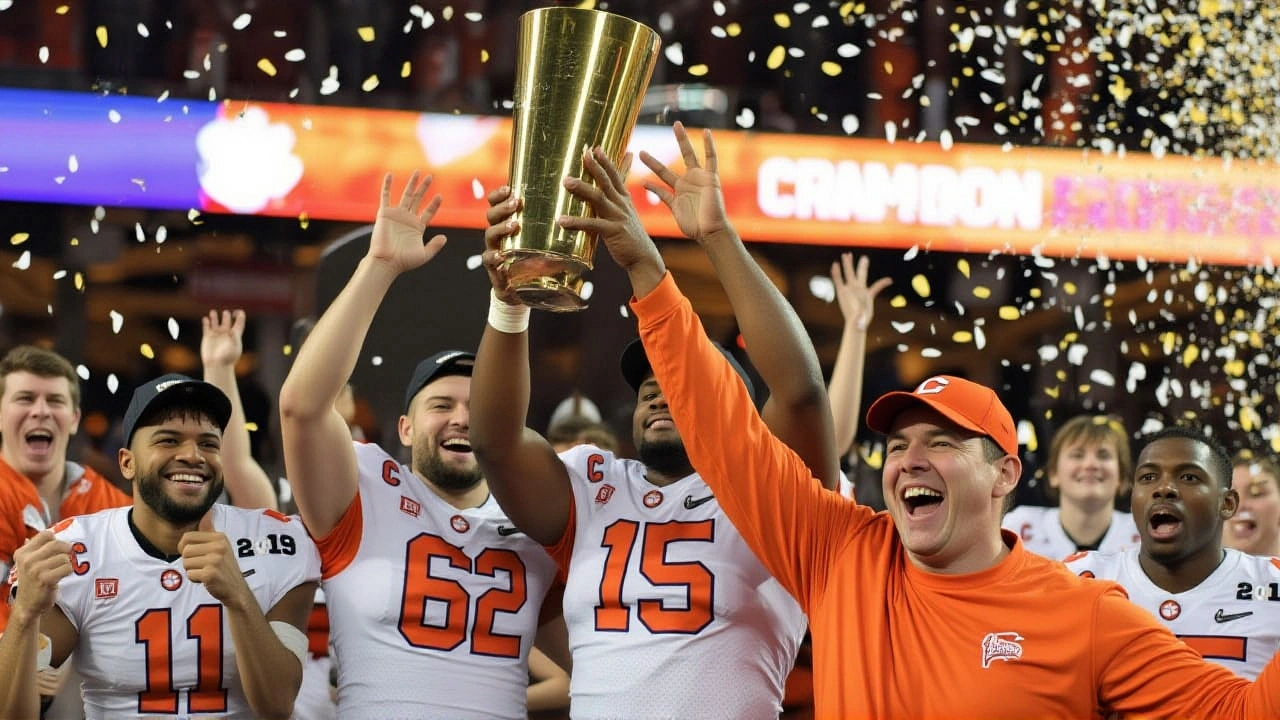The College Football Playoff Management Committee has reshaped the postseason landscape for the 2025-26 College Football Playoff, making a pivotal shift that could redefine how teams earn their way to the national title. Starting this season, the four highest-ranked teams overall will receive first-round byes — no matter if they won their conference or not. That’s a stark departure from 2024, when only the top four conference champions got the luxury of sitting out the opening round. The announcement, made on , came from Rich Clark, executive director of the College Football Playoff, who said the change was designed to "recognize the best performance on the field during the entire regular season." In plain terms: wins matter more than titles now.
How the New 12-Team Format Works
The 2025-26 College Football Playoff still includes 12 teams, but the path to get there has been rewritten. Five automatic bids go to the highest-ranked conference champions — but only if their league has at least eight members. That rule, established in May 2024, still stands. The remaining seven spots go to the next highest-ranked teams, regardless of conference affiliation. This opens the door for independents like Notre Dame to earn a top-four seed — and a bye — without ever winning a conference championship.
Here’s the new seeding structure: Teams ranked 1 through 4 get byes. Teams ranked 5 through 12 play in the first round on (one game) and (three games). The higher-seeded team hosts — meaning a team like Memphis, projected as the fifth-highest conference champ in early 2025 rankings despite not being top-25, could host a game even if they’re the lowest seed in the first round.
Why This Change Matters
The 2024 format was criticized for rewarding conference titles over outright dominance. In that inaugural 12-team season, a 10-2 team from a Power Five conference with a conference title could sneak in ahead of a 12-0 team from a Group of Five league — simply because of the automatic bid. The new system fixes that. Now, a 12-0 team from the AAC, even if they didn’t win their conference, could be seeded No. 1 — and host a quarterfinal. And yes, that’s possible. As analysts Stan Becton and Sharrieff Muhammad explained in a September 2025 YouTube breakdown, "any of those last four conferences could miss the playoffs if they’re not the five highest ranked conference champions." The door is open for upsets in the selection room.
And here’s the twist: if a conference champion finishes outside the top 12, they don’t get cut. They move up to fill the lowest available seed. So if only three conference champions make the top 12, the next four highest-ranked teams get in — and the fifth conference champ gets bumped up to No. 12. It’s a safety net designed to protect conference champions without letting them override merit.

The Bracket Rules — No Re-Seeding, No Rematch Avoidance
Unlike some other sports playoffs, the CFP doesn’t re-seed after the first round. Once the bracket is set on Selection Sunday, it’s locked in. And no, the committee won’t rearrange matchups to avoid rematches. If Alabama and Georgia played in October and both make the playoff, they could meet again in the semifinals — even if it’s a rematch. The same goes for teams from the same conference. This isn’t the NBA playoffs. This is college football, and the committee’s mantra is: "Let the best teams win, regardless of who they’ve already faced."
The quarterfinals are set for (Goodyear Cotton Bowl Classic) and (Capital One Orange Bowl). The semifinals follow one week later in the other two New Year’s Six bowls. The national championship game — still a neutral-site affair — will be played on at a location yet to be announced.
Who’s in Charge — And How They Decide
The College Football Playoff Management Committee is made up of 13 athletics directors and conference commissioners from across the FBS. Their job? Vote. Every week, each member submits a list of the 30 teams they believe are the best in the country — no order. Teams that appear on three or more ballots stay in play. Others can be added by committee vote. It’s messy. It’s human. And it’s deliberate. No algorithm. No computer ranking. Just 13 people, watching film, talking, and arguing — just like fans do on Saturdays.
And here’s the kicker: the CFP now administers all 11 playoff games. That’s a major shift from 2024, when the first round was still loosely tied to existing bowl contracts. Now, the CFP controls everything — scheduling, broadcasting, logistics. The entire postseason is a unified product.

What This Means for the Game
This change doesn’t just affect rankings — it reshapes the entire season. Teams no longer need to chase a conference title just to get a bye. A 12-0 Group of Five team with a loss in the conference title game might now be seeded higher than a 10-2 SEC champ. That incentivizes winning every game, not just winning your division. It also elevates the value of non-conference scheduling. A win over a top-10 team in September could be the difference between a first-round bye and a home game in December.
For fans, it means more drama. More upsets. More teams with something to prove. For coaches, it means every game is a playoff game — even in Week 2. And for schools outside the Power Five? This is their best shot yet. The system no longer protects the old guard. It rewards the best teams. Period.
Frequently Asked Questions
Can a team make the playoffs without winning their conference?
Yes. While five conference champions get automatic bids, the remaining seven spots go to the highest-ranked teams regardless of conference status. An undefeated Group of Five team that loses its conference title game can still make the field — and even earn a top-four seed with a strong resume. Notre Dame, as an independent, could qualify without ever playing a conference game.
What happens if a conference champion falls outside the top 12?
They still get in. The CFP guarantees five conference champions a spot. If one falls outside the top 12, they’re bumped up to the lowest available seed — even if that means pushing a higher-ranked non-champ out. This ensures conference champions aren’t penalized for losing late, but it also means a 9-3 conference champ could take a spot from a 12-0 team if the latter isn’t in the top 12.
Why didn’t the CFP avoid rematches?
The committee decided that avoiding rematches would undermine the integrity of the rankings. If two teams earned their way to a rematch by being the two best teams, the system should let them play. This mirrors the NCAA basketball tournament’s approach — and it creates bigger moments. A Georgia-Alabama rematch in the semifinals? That’s a national event.
How does the selection committee vote?
Each of the 13 committee members submits a list of the 30 teams they believe are the best, with no ranking. Teams appearing on three or more lists remain under consideration. Additional teams can be added by a three-member vote. There’s no formula. No computer model. Just 13 people watching film, discussing strength of schedule, and debating losses — much like fans do on Reddit, but with official power.
Can a team from the AAC or Mountain West get a bye?
Absolutely. If a team from the AAC, Mountain West, or any other conference finishes as the No. 1, 2, 3, or 4 team in the final rankings, they get a first-round bye — even if they didn’t win their conference. In 2025, Memphis was projected as the fifth-highest conference champ despite not being top-25. But if they’d gone undefeated and beaten a top-10 team, they could’ve been No. 2. The system rewards performance, not affiliation.
When will the full bracket be released?
The full 12-team bracket will be revealed on Selection Sunday, December 7, 2025. That’s when the final rankings are announced, and the matchups for the first round are locked in. The quarterfinal pairings are assigned based on seeding and existing bowl contracts, with the No. 1 seed getting geographic preference for the semifinal site.
